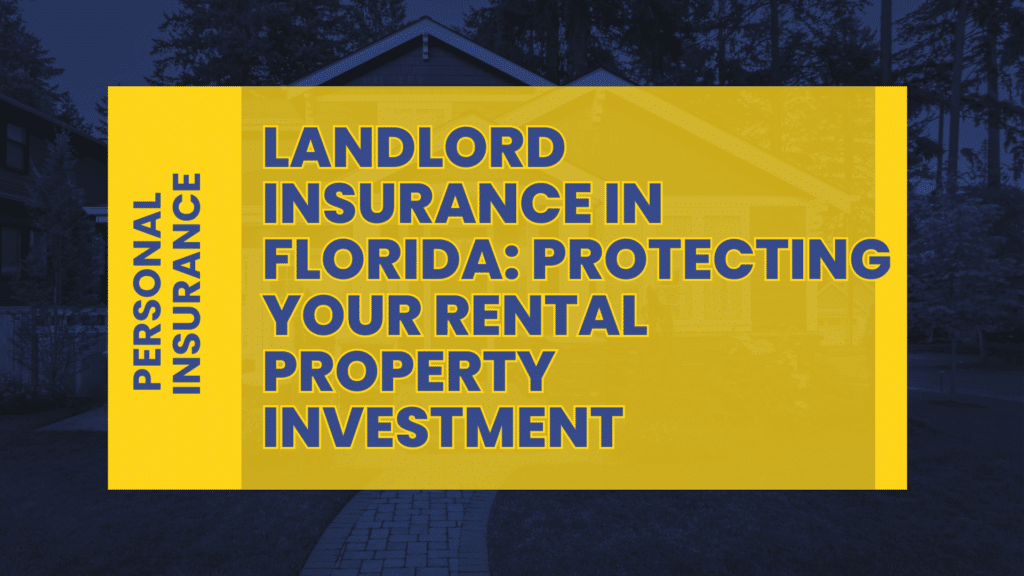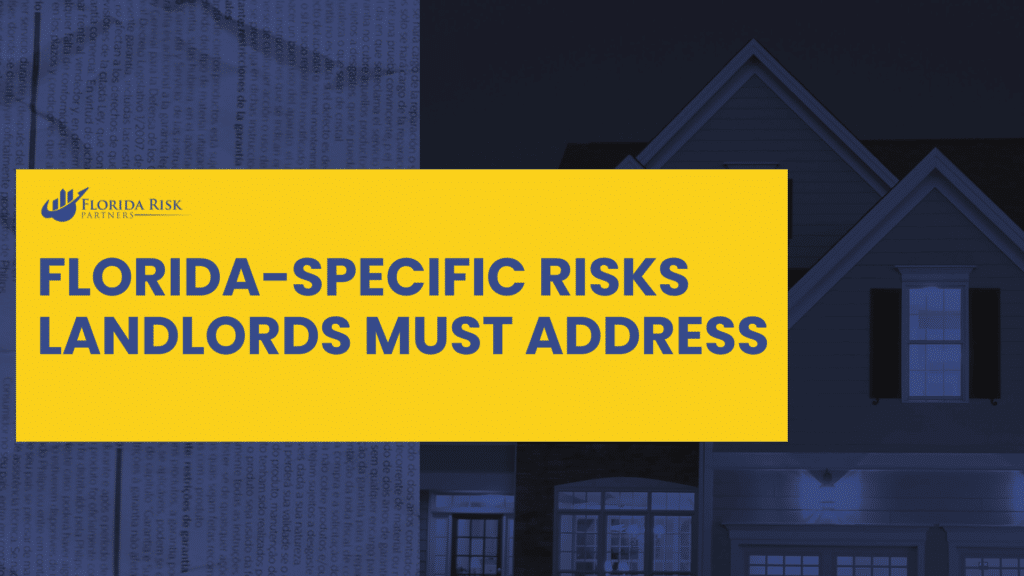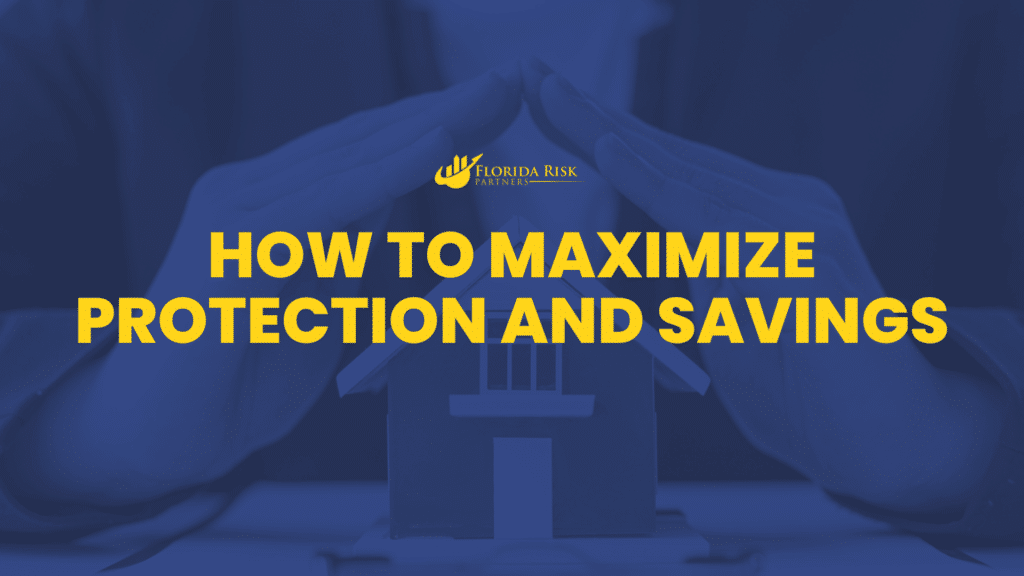-
Main Office: 1434 E. Bloomingdale Ave Valrico, FL 33596-6110
-
Phone: (888) 601-6660
-
Email: info@floridariskpartners.com

Owning a rental property in Florida can be a smart financial move. Whether it’s a single-family home in Tampa, a condo in Miami, or a duplex in Orlando, real estate offers steady income and long-term value. But it also comes with risks—especially in a state known for hurricanes, flooding, and strict insurance markets.
Here’s the key truth: a standard homeowners insurance policy won’t protect your rental property. Once tenants live in the home instead of you, the rules change. You need landlord insurance—sometimes called a dwelling fire or DP-3 policy—to fully safeguard your investment.
In this guide, we’ll explain what landlord insurance covers, how it differs from homeowners coverage, common Florida-specific risks, and how to ensure your rental property is financially secure.
Why Homeowners Insurance Isn’t Enough for Rentals
A homeowners (HO-3) policy is designed for owner-occupied homes. If you rent out your property, that policy likely won’t cover damage or liability. In fact, many insurers will deny claims if they discover the property wasn’t owner-occupied at the time of loss.
Landlord insurance solves this problem by tailoring coverage to rental properties. It protects not just the structure, but also your income stream and liability exposure as a landlord.
What Landlord Insurance Covers
Property Coverage
Pays to repair or rebuild the structure if it’s damaged by covered perils like fire, wind, hail, or theft. This includes the dwelling itself and any landlord-owned items inside (like appliances).
Liability Coverage
Protects you if a tenant or guest is injured on the property and claims you were negligent. Example: a tenant trips on a broken step or slips by the pool and sues you.
Loss of Rents (Fair Rental Value)
If your property becomes uninhabitable due to a covered loss, landlord insurance reimburses the rental income you lose during repairs. This is critical for investors relying on steady cash flow.
Optional Coverages
- Vandalism and malicious mischief (sometimes excluded, can be endorsed).
- Ordinance or Law for code upgrade costs after damage.
- Flood insurance (still excluded, must be purchased separately).
- Umbrella liability for landlords with multiple properties or high net worth.
Florida-Specific Risks Landlords Must Address

Hurricanes and Windstorms
Your biggest exposure in Florida. Make sure your dwelling limit matches today’s rebuilding costs and check your hurricane deductible (commonly 2–5% of Coverage A).
Flooding
Standard landlord policies exclude flood damage. A separate NFIP or private flood policy is the only way to cover rising water.
Roof Age
Florida insurers are strict on roof age. A roof older than 15 years can trigger non-renewals or limited coverage (Actual Cash Value instead of Replacement Cost).
Liability from Pools or Pets
If your rental has a pool or allows pets, your liability risk increases. Verify that your policy covers these exposures—or add endorsements if needed.
How Much Does Landlord Insurance Cost in Florida?
Landlord insurance typically costs 15%–25% more than homeowners insurance for a similar property. Why? Because tenants pose higher risks: they may not maintain the property as carefully as an owner, and vacant periods increase exposure.
That said, the cost of going without landlord coverage is far greater. One fire, hurricane, or lawsuit can wipe out years of rental income.
Real-Life Example: Two Landlords, Two Outcomes
- Landlord A rents out his property but keeps his old homeowners policy. When a kitchen fire caused by a tenant destroys part of the home, his insurer denies the claim because the property wasn’t owner-occupied. He’s left with $80,000 in repair bills.
- Landlord B carries a proper landlord policy. When a similar fire damages her rental, her insurer covers the rebuild and pays her lost rental income for three months. She continues collecting income even during repairs.
Which scenario would you rather face?
Renters Insurance: A Landlord’s Secret Weapon
Savvy landlords also require tenants to carry renters insurance. Here’s why:
- Protects the tenant’s belongings, reducing disputes after a loss.
- Provides liability coverage for tenants (so their insurer may respond first).
- Demonstrates responsibility, attracting better tenants.
Some insurers even offer discounts if you mandate renters insurance in your lease.
How to Maximize Protection and Savings

- Bundle landlord policies: If you own multiple rentals, place them with the same carrier for discounts.
- Invest in wind mitigation: Roof straps, impact windows, and reinforced garage doors can lower both risk and premiums.
- Increase deductibles wisely: Higher deductibles reduce premiums but make sure you can afford the out-of-pocket.
- Add an umbrella policy: For just a few hundred dollars a year, you can add $1–5 million in liability coverage across all your properties.
- Work with an independent agent: Florida’s market is tough—let a professional shop multiple carriers for you.
Common Misconceptions About Landlord Insurance
- “It’s the same as homeowners insurance.”
Wrong. A homeowners policy won’t cover tenant-occupied risks. - “My tenants’ renters insurance is enough.”
It’s helpful, but it protects them—not you. You still need landlord coverage. - “It’s too expensive.”
The cost of uncovered hurricane damage or a liability lawsuit dwarfs the annual premium.
How Florida Risk Partners Helps Landlords
At Florida Risk Partners, we specialize in helping landlords and investors safeguard their properties and income. We’ll:
- Compare landlord insurance quotes from multiple Florida carriers
- Ensure your coverage limits match today’s rebuilding costs
- Add loss of rents and liability protection to keep your cash flow secure
- Help you require renters insurance from tenants
- Bundle multiple properties for maximum savings
- Provide flood insurance options tailored to rental properties
We make sure your rental investment isn’t just covered—it’s protected the right way.
Final Thoughts
Owning rental property in Florida is a smart investment—but only if you protect it properly. Hurricanes, floods, and lawsuits can derail your plans overnight. That’s why landlord insurance is non-negotiable.
With the right policy, you’ll safeguard your property, your income, and your financial future. Don’t risk everything you’ve built on the wrong coverage.
Call to Action: Contact Florida Risk Partners today for a customized landlord insurance quote and policy review. We’ll help you protect your rental property and maximize your investment returns.
Call Us Or
Schedule an Appointment
Select an agent below to view our online calendars and select a day and time that works best for you or call us directly at 888-601-6660. When you use our online calendars, you will receive an email with more information.



